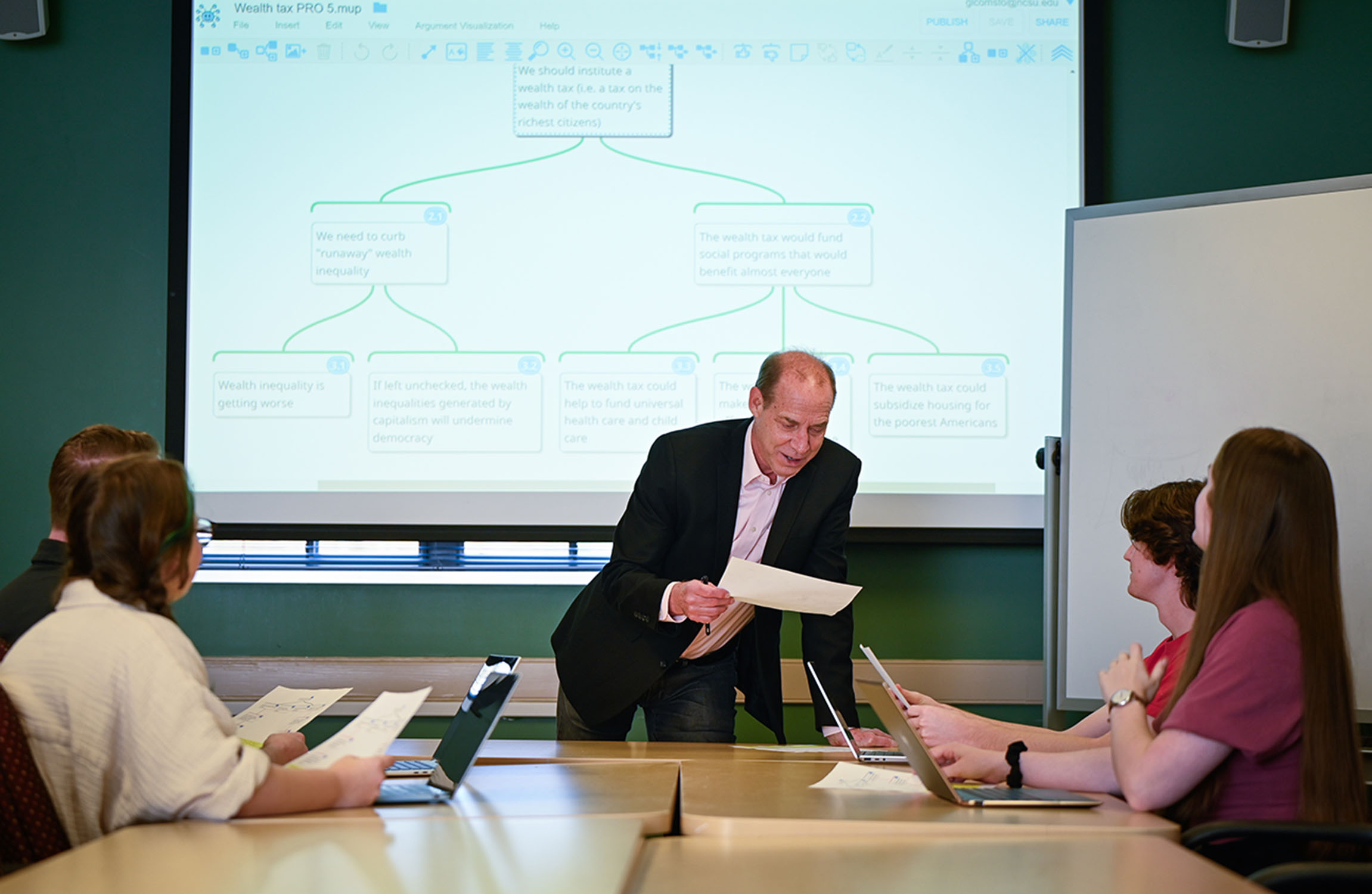‘Growth Mindset’ Intervention Boosts Confidence and Persistence in Entrepreneurship Students

A low-cost intervention aimed at fostering a growth mindset in students gave the students more confidence in their entrepreneurship abilities and helped them persist when challenges arose.
“The finding is valuable because efficacy, or confidence in one’s abilities, and perseverance are powerful motivators and are critical for career development in entrepreneurship,” says Jeff Pollack, second author of a paper on the work and an associate professor of entrepreneurship at North Carolina State University.
“Growth mindsets – the belief that human attributes are malleable – help students to flourish,” says Jeni Burnette, lead author of the paper and an associate professor of psychology at NC State. “For this study, we focused on fostering a growth mindset of entrepreneurship – the idea that everyone can improve their entrepreneurship ability.”
For the study, researchers worked with 238 undergraduate students. One group of 120 students received three growth mindset video modules focused on the idea that, with time, effort and energy, individuals can improve their entrepreneurship ability. A control group of 118 students watched three video modules that focused on misconceptions about entrepreneurship.
The study found that the growth mindset intervention did not directly or indirectly affect the classroom performance of students.
However, in post-intervention surveys, the researchers found that students who received the growth mindset intervention, relative to the control, reported greater entrepreneurial self-efficacy, such as confidence in their ability to identify new business opportunities and create new products. The growth mindset intervention also fostered greater persistence. Specifically, students reported continuing to pursue an entrepreneurial idea as part of a class project, even after encountering a challenge.
Additionally, self-efficacy correlated with an increased likelihood that students would consider entrepreneurship as a field of study and as a possible career.
Effects of the intervention did not depend on the student’s gender or previous experience in the entrepreneurship field.
“This low-cost approach can be easily integrated into the classroom and is a promising tool for increasing students’ motivation in entrepreneurship above and beyond simply learning about the field,” Burnette says.
The paper, “A Growth Mindset Intervention: Enhancing Students’ Entrepreneurial Self-Efficacy and Career Development,” is published in the journal Entrepreneurship Theory and Practice. The paper was co-authored by Alexandra Babij and Fanice Thomas, both Ph.D. students at NC State; Rachel Forsyth of the University of Florida; Crystal Hoyt of the University of Richmond; and Anthony Coy of the University of South Florida-Sarasota-Manatee.
The work was done with support from the Ewing Marion Kauffman Foundation, under grant number G-201703-1934.
-shipman-
Note to Editors: The study abstract follows.
“A Growth Mindset Intervention: Enhancing Students’ Entrepreneurial Self-Efficacy and Career Development”
Authors: Jeni L. Burnette, Jeffrey M. Pollack, Alexandra D. Babij and Fanice N. Thomas, North Carolina State University; Rachel B. Forsyth, University of Florida; Crystal L. Hoyt, University of Richmond; and Anthony Coy, University of South Florida-Sarasota-Manatee
Published: Aug. 13, Entrepreneurship Theory and Practice
DOI: 10.1177/1042258719864293
Abstract: Despite mounting interest in growth mindset interventions, this approach has yet to be applied to the domain of entrepreneurship. In the present research, we developed and tested if a growth mindset intervention could be leveraged to promote students’ entrepreneurial self-efficacy and if this, in turn, predicted career development (i.e., academic interest, career interest, task persistence, and academic performance). We report on our findings, from an Open Science Framework (OSF) pre-registered study, that is a randomized controlled trial implementing a growth mindset intervention. We randomly assigned undergraduate students (N=238) in an introduction to entrepreneurship class to either the growth mindset intervention or to a knowledge-based attention-matched control. Students in the growth mindset intervention, relative to the control, reported greater entrepreneurial self-efficacy and task persistence on their main class project. The intervention also indirectly improved academic and career interest via entrepreneurial self-efficacy. However, the intervention failed to directly or indirectly impact performance on a classroom assignment. Additionally, and somewhat surprisingly, gender and past experience in the field failed to moderate any effects of the intervention on outcomes. Theoretical implications, limitations, and future directions are discussed.
This post was originally published in NC State News.
- Categories:


